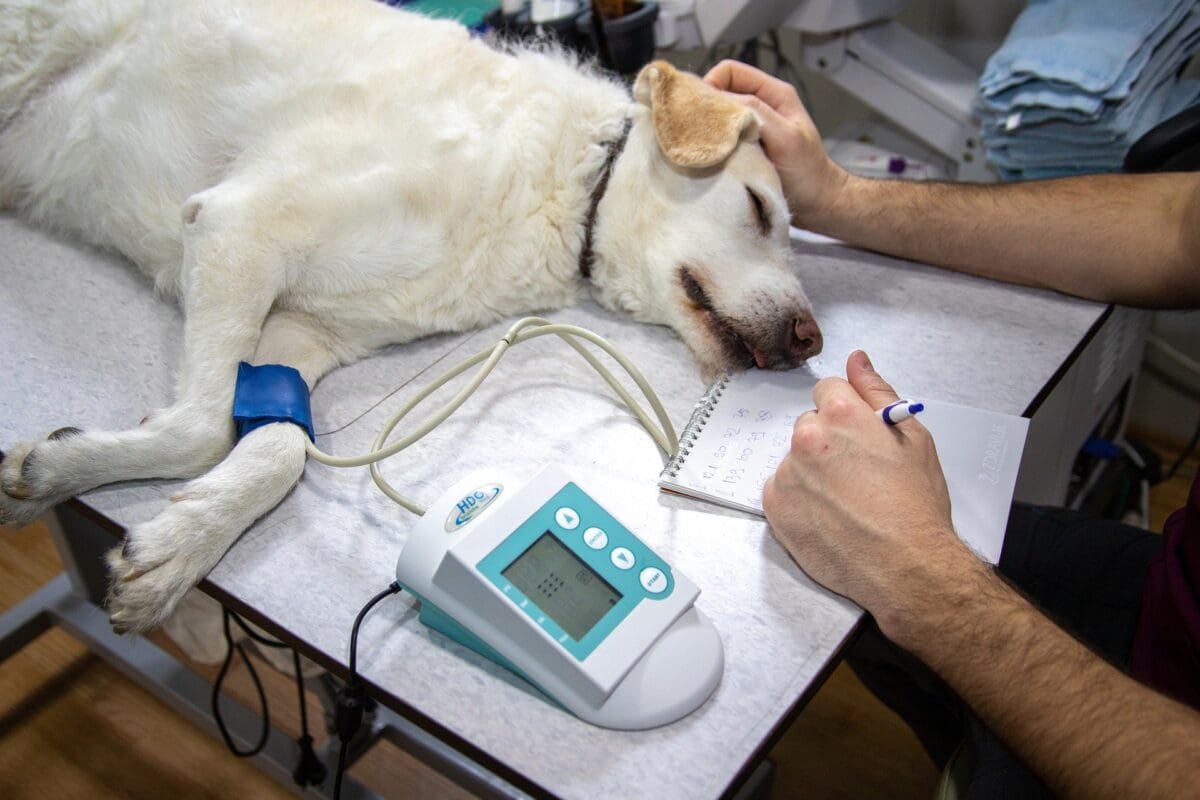Article originally published on Daily Hive.
When a child of a wealthy parent breaks their arm, they can go to the hospital, receive diagnostic x-rays, and be treated without their family worrying about the cost of care.
When the child of a low-income parent breaks their arm, they get the same treatment. That’s because mandatory medical expenses are covered under MSP in British Columbia. Unfortunately, the story would be very different if the family member needing care were a dog.
Veterinary care is not subsidized by the government, which leads to some bleak statistics. More than 100,000 pets were surrendered to Canadian shelters in 2019. Research tells us financial difficulties are one of the top reasons people give up their pets.
Those surrenders have a huge impact on families. 58% of Canadians have a cat or dog in their household; evidence shows that these companion animals provide emotional and mental health benefits to their human guardians and even help them react, cope, and recover from disaster situations. And yet, veterinary care is not considered a priority in the holistic care of Canadians – not widely, and certainly not in a way that is supported by government funding.
People who are living on a low income do not have the luxury of saving for emergencies. If their beloved pet falls ill, if they escape from the house and get hit by a car, or if they develop a suspicious lump on their paw, those animal guardians are forced to make almost impossible decisions.
One animal guardian who received assistance through Vancouver Humane Society’s (VHS) Helping Women and Pets in Crisis program said, “We spent our rent money to get him medicine in the hospital to prevent him from suffering. I accepted that I would have to without some basic needs and put off rent for a couple of months to catch up financially.”
These concerns are commonplace among the people who reach out to VHS for help with veterinary bills. Do I pay for my cat’s biopsy, or cover rent this month so we both have somewhere to live? Would my dog be better off if I manage his pain at home, or surrender him to an animal shelter that could give him the emergency surgery he needs?
This is where the current system of paid veterinary care runs into complicated equity issues. In cases when a person can’t afford needed veterinary services, they often have little choice but to give up their pet. That animal experiences the stress of losing the most important person in the world to them. In turn, they are adopted out to another, most often wealthier, family. The result is a system that effectively takes pets from the poor to give them to the rich.
One animal guardian VHS spoke with expressed their confusion and frustration with the current system: “I still have the fear if you can’t pay for the bill, they may ask you to surrender the animal. I didn’t want to surrender the animal. I can feed her. She’s loved. She’s not abused.”
Indeed, the oft-refuted claim that pets of people experiencing low income and homelessness are well cared for has now been backed by a study from the University of Guelph. The study affirms what low-income pet guardians have always known: that people experiencing low income and even homelessness care for and love their pets, going as far as to put their animal’s needs ahead of their own. All they need is a little support.
A recent research article published by VHS and Dalhousie University Professor Haorui Wu gives some insight into what form that support may take. Pet guardians who experienced barriers to veterinary care in 2020 said they could have more easily accessed care for their animals with the help of payment plans, compassionate pricing for low-income people, and government regulations to ensure consistent costs.
The article also suggests that veterinary staff receive training in trauma-informed practices, which would improve doctor-client communication, reduce stress for animal guardians and veterinary staff, and encourage low-income individuals to seek veterinary care before their animal’s health is in such a severe state of crisis that they must be euthanized.
British Columbia is facing a veterinarian shortage, with severe related mental health impacts. Add to that a housing shortage and an opioid crisis, and the outlook for pets is not good in our province.
If we want mental health support for all, financial security for all, and equity for all, the choice is clear: we need accessible, trauma-informed veterinary care for all.

